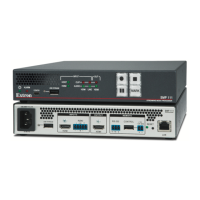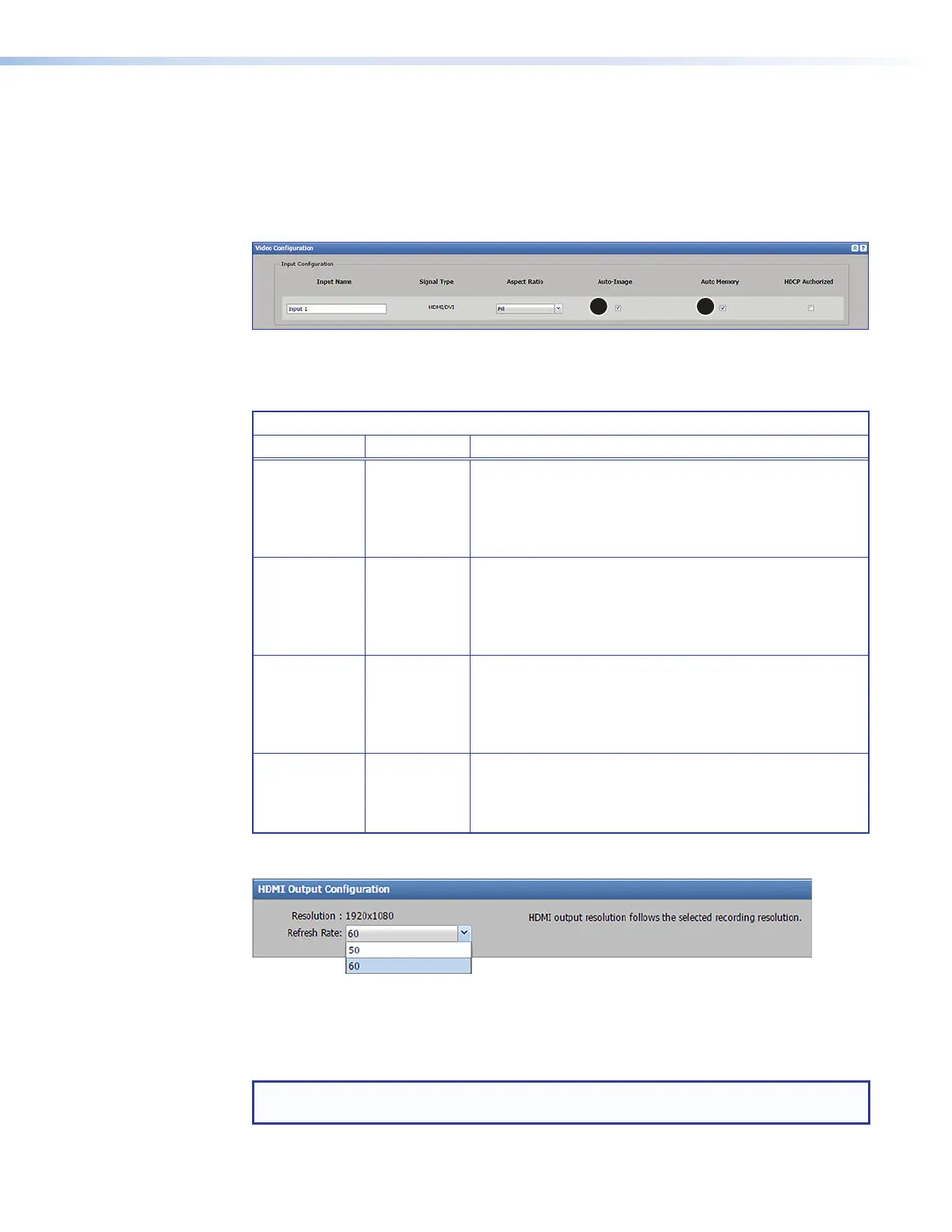SMP111 • Web-Based User Interface 43
Auto Memory and Auto-Image
Select the checkbox to enable Auto-Image (see figure 24,
1
). Auto-Image simplifies setup
by executing image sizing, centering, and filtering adjustments with a single button push.
Select the checkbox to enable Auto Memory (
2
). Auto Memory recalls input and image
settings for signals that have previously been applied. When AutoMemory is disabled, the
SMP111 treats every new input as a new source.
1 2
Figure 24. Video Configuration Auto-Image and Auto Memory
These two features can work together depending on the configuration the user chooses.
See the table below for more information on the settings.
Auto Memory and Auto-Image Features
Auto Memory Auto-Image Information
On On "New" signals or rates not previously detected by the
device are initially set up using default parameters. Then,
Auto-Image is automatically applied and those values are
stored. The next time that signal is detected, the stored
values in the auto memory location are applied.
On Off "New" signals or rates not previously detected by the
device are set up using default parameters. If changes
are made manually to the input and picture settings, an
auto memory location is created and then recalled each
successive instance that the input is detected.
Off On When auto memory is disabled, each change in the
input sync is treated as a new signal, and Auto-Image
is triggered automatically. Any changes that are made
manually to the image and picture controls are lost each
time a new refresh rate is detected.
Off Off Each change in the input sync causes default values
to be applied to the rate. Any changes that are made
manually to the image and picture controls are lost when
a new rate is applied.
HDMI Output Configuration
Figure 25. HDMI Output Configuration Pane
The refresh rate for the output of the SMP can be selected from the drop-down list. Choose
50 Hz or 60 Hz. The Resolution of the HDMI output can be viewed in this pane. It is
configured in the Encoder Settings and Metadata page (see page 49).
NOTE: The resolution of the local (preview) output follows (is based on) the recording
encoder resolution.
figure 24
figure 25

